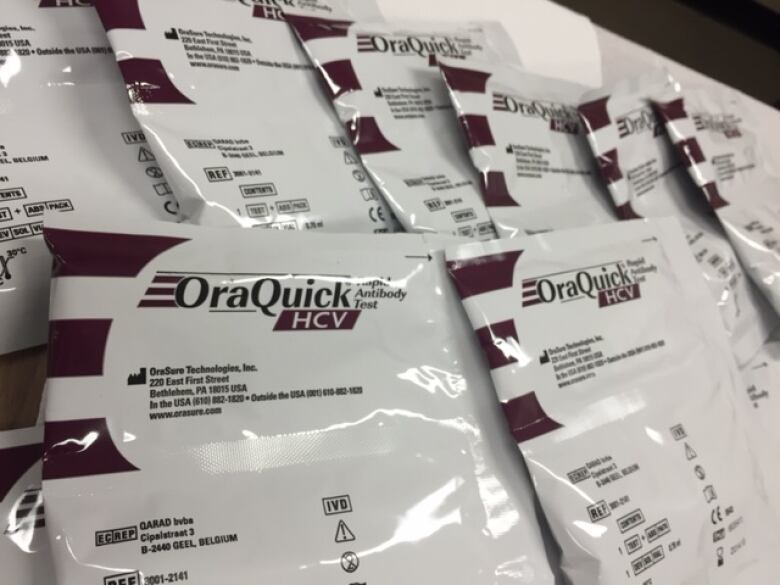'I thought my life was over': World Hepatitis Day sparks awareness in Saskatoon
Saskatchewan has one of the highest rates of hepatitis C per capita in Canada

World Hepatitis Day is on Thursday but residents in Saskatoon are looking to raise awareness all week.
"I want people to know that they can get cured but they have to get tested," said hepatitis C survivor, Don Lesser.
He was one of the participants at a testing fair for hepatitis C at the Friendship Inn on Tuesday. It was hosted by the Saskatchewan Infectious Disease Care Network.
No one knows they're sick, really. It's such a gradual illness it's so sneaky that people don't realize what exactly they have.-Mick Davies
After four treatments, Lesser said he's been cleared of the virus.
"I thought my life was over. I basically thought that I was a dead man, a walking dead man, but I'm here today and I'll fight," he said. "I want everybody else to fight because if I can do it, everybody else can do it."
Another participant, Mick Davies, said he's currently being monitored for having recently beaten the virus.
"People are dying because they just didn't want to bother with it," he said. "No one knows they're sick, really. It's such a gradual illness it's so sneaky that people don't realize what exactly they have."
He said the symptoms will mask themselves as illnesses such as flus or colds that could last for weeks.
"I say get checked as soon as possible," he added. "Once you're really ill, it's kind of late."
Eliminating hepatitis B and C by 2030
Back in May, 194 member states, including Canada, voted to adopt the first ever Global Viral Hepatitis strategy. It happened at the World Health Assembly in Geneva, Switzerland.
The strategy has one main goal: eliminating hepatitis B and C by 2030.
"We don't have a national strategy yet in Canada and that's what we're working hard on to develop a national strategy right across Canada so that physicians and patients and the public are educated and understand that it's worthwhile to just get this one test," said Lesley Gallagher. She's a hepatitis C treatment support nurse with the Saskatchewan Infectious Disease Care Network.

She said next to the Yukon, Saskatchewan has the highest rates of hepatitis C per capita across the country, and one of the maindrivers of infection is injection drug use.
"This is a huge task. We have to look at the entire cascade of care," said Gallagher. "Right from getting out there and diagnosing people, so people are aware of their diagnosis and educating them, and then linking them in to care."
Difference between hepatitis B and C
Gallagher said that both hepatitis B and C areviral but the main difference between the two is that hepatitisC can only be transmitted through blood-to-blood.
- Sask. woman pays $23K for drug to cure hepatitis C
- Hepatitis C cure costly, available only for advanced cases
Hepatitis B can be transmitted through blood as well, but Gallagher said the virus can also be passed through ways including sexual transmission and maternally to a child.
She saidthe hepatitis Bvirus also has a vaccination so its transmissioncan be prevented.
"But we have great medications that are out there that we're having amazing success with," Gallagher added.
She said treatment could last as little as eight weeks.
For more information about events around Saskatchewan for World Hepatitis Day, click here.
With files from CBC's Saskatoon Morning












_(720p).jpg)


 OFFICIAL HD MUSIC VIDEO.jpg)
.jpg)



























































































